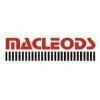Research Associate
400+ Research Associate Interview Questions and Answers

Asked in Aragen Life Sciences

Q. What are some name reactions that form new carbon-carbon bonds without a metal catalyst?
Aldol condensation, Michael addition, Wittig reaction, Grignard reaction are some name reactions to form new c-c bond without metal catalyst.
Aldol condensation involves the reaction of an enolate ion with an aldehyde or ketone to form a β-hydroxy carbonyl compound.
Michael addition involves the addition of a nucleophile to an α,β-unsaturated carbonyl compound.
Wittig reaction involves the reaction of a phosphorus ylide with an aldehyde or ketone to form an alkene.
Grignard react...read more

Asked in Aragen Life Sciences

Q. If you have to separate an acid from an acid-base mixture in a liquid state, how would you do that?
To separate acid from an acid-base mixture in liquid state, we can use various methods such as solvent extraction, distillation, or ion exchange.
Solvent extraction involves adding a solvent that selectively dissolves the acid, then separating the two layers.
Distillation involves heating the mixture to vaporize the acid, then condensing it back into a separate container.
Ion exchange involves passing the mixture through a resin that selectively binds to the acid, then eluting t...read more
Research Associate Interview Questions and Answers for Freshers

Asked in Lupin

Q. What do you do when fermenters are not sterilized with the standard sterilization protocol?
I would investigate the cause and try alternative sterilization methods.
Check if there is an issue with the equipment or the sterilization process
Try alternative sterilization methods such as chemical sterilization or dry heat sterilization
Consult with colleagues or experts in the field for advice
Document the issue and any actions taken for future reference

Asked in Alivus Life Sciences

Q. What is NMR? Briefly introduce its basic principle and its applications.
NMR stands for Nuclear Magnetic Resonance. It is a spectroscopic technique used to study the magnetic properties of atomic nuclei.
NMR works by applying a strong magnetic field to a sample and then measuring the absorption and emission of electromagnetic radiation by the nuclei in the sample.
It is used in chemistry to determine the structure and composition of molecules, as well as to study chemical reactions.
In medicine, NMR is used in magnetic resonance imaging (MRI) to prod...read more

Asked in Syngene International

Q. In the presence of an ester, how can an acid be selectively reduced?
Selective reduction of acid in presence of ester
Use a reducing agent that selectively reduces acid over ester
Common reducing agents are LiAlH4 and NaBH4
LiAlH4 reduces both acid and ester, but in presence of acid it selectively reduces acid
NaBH4 reduces only acid, not ester
Example: Reduction of benzoic acid to benzyl alcohol in presence of benzyl ester using LiAlH4

Asked in Lupin

Q. While working in the laboratory, if you can only follow either safety or GLP, which would you choose and why?
I would choose to follow safety parameters over GLP.
Safety of personnel and environment is of utmost importance
GLP can be compromised temporarily but safety cannot
Non-compliance with safety regulations can lead to serious consequences
Research Associate Jobs




Asked in Syngene International

Q. How do you find the residual ethyl acetate in a compound using NMR?
Rest ethyl acetate in compound can be found by NMR using specific peaks and chemical shifts.
Look for the peak at 1.0-1.2 ppm which corresponds to the ethyl group
Look for the peak at 4.0-4.1 ppm which corresponds to the acetate group
Subtract the integral of these peaks from the total integral to find the rest ethyl acetate
Compare the chemical shifts of the peaks to known values for ethyl acetate

Asked in Glenmark Pharmaceuticals

Q. How do you select a column and mobile phase for method development?
Column and mobile phase selection is based on the analyte properties and separation goals.
Consider the analyte's physicochemical properties such as polarity, molecular weight, and stability.
Choose a column with appropriate stationary phase chemistry (e.g., C18 for hydrophobic compounds).
Optimize mobile phase composition (solvent ratio, pH, buffer) for desired separation.
Consider the separation goals (resolution, selectivity, speed) and adjust column and mobile phase according...read more
Share interview questions and help millions of jobseekers 🌟


Asked in Lupin

Q. What are the two most important reactions on which humans, animals, and plants depend?
The two most important reactions for humans, animals and plants are photosynthesis and respiration.
Photosynthesis is the process by which plants convert sunlight, carbon dioxide and water into glucose and oxygen.
Respiration is the process by which living organisms convert glucose and oxygen into energy, carbon dioxide and water.
Photosynthesis and respiration are complementary processes that sustain life on Earth.
Photosynthesis produces the oxygen that animals and humans breat...read more

Asked in Lupin

Q. Previous job responsibilities. Over all process flow of upstream processing. Make and MOC of the material and system use during the operation. What is FIT,CIP and SIP. Types of and part of bioreactor system. ro...
read moreAnswering questions related to upstream processing, including process flow, material and system use, FIT, CIP, SIP, bioreactor system, and role of raw material in media.
Previous job responsibilities in upstream processing
Process flow of upstream processing
Make and MOC of the material and system use during operation
FIT, CIP, and SIP
Types of and part of bioreactor system
Role of raw material in media

Asked in O2H Group

Q. What will be the desired product of bromination on aniline and toluene?
The desired product of bromination on aniline is 2,4,6-tribromoaniline. The desired product of bromination on toluene is bromotoluene.
Bromination on aniline results in the substitution of three bromine atoms on the aromatic ring, yielding 2,4,6-tribromoaniline.
Bromination on toluene results in the substitution of one bromine atom on the aromatic ring, yielding bromotoluene.

Asked in Aragen Life Sciences

Q. What are H1NMR values? Types of reactions? Explain NMR?
H1NMR values are chemical shifts observed in nuclear magnetic resonance spectroscopy. NMR is a technique used to study the structure and properties of molecules.
H1NMR values refer to the chemical shifts observed in proton nuclear magnetic resonance spectroscopy.
NMR is a powerful analytical technique used to study the structure, dynamics, and properties of molecules.
It involves the interaction of atomic nuclei with a strong magnetic field and radiofrequency radiation.
Different...read more

Asked in Morningstar

Q. What does Sustainalytics do?
Sustainalytics provides ESG research, ratings, and analytics to help investors integrate sustainability into their decision-making.
Offers ESG ratings that assess companies' environmental, social, and governance performance.
Provides research reports that analyze sustainability risks and opportunities in various sectors.
Helps investors identify and manage ESG risks in their portfolios, enhancing long-term value.
Collaborates with organizations to develop sustainable investment s...read more

Asked in Jubilant Biosys

Q. How do you handle and quench pyrophoric chemicals in a reaction?
Pyrophoric chemicals can be handled and quenched by using inert gases, specialized containers, and proper disposal methods.
Use inert gases such as nitrogen or argon to displace air and prevent ignition.
Store and handle pyrophoric chemicals in specialized containers such as air-tight glass ampoules or sealed metal containers.
Dispose of pyrophoric chemicals properly by contacting a hazardous waste disposal company.
Examples of pyrophoric chemicals include alkali metals, metal hy...read more

Asked in Lupin

Q. Why did you use glycerol for the long-term preservation of bacterial cultures?
Glycerol is used for long term preservation of bacterial cultures due to its ability to prevent ice crystal formation and cell damage.
Glycerol acts as a cryoprotectant, preventing ice crystal formation and cell damage during freezing.
It allows for long term storage of bacterial cultures at -80°C.
Glycerol is added to the bacterial culture before freezing to a final concentration of 15-20%.
It is a common practice in microbiology and biotechnology research.
Other cryoprotectants ...read more

Asked in O2H Group

Q. How do you convert an ester to an aldehyde?
Esters can be converted to aldehydes by hydrolysis under acidic conditions.
Esters can be hydrolyzed to aldehydes using a strong acid, such as sulfuric acid or hydrochloric acid.
The reaction involves the cleavage of the ester bond and the formation of a carboxylic acid intermediate, which is then further reduced to an aldehyde.
The reaction can be carried out at elevated temperatures or using a catalyst, such as p-toluenesulfonic acid.
For example, ethyl acetate can be converted...read more

Asked in Aurobindo Pharma

Q. How do you prepare 0.1 N HCl and NaOH?
To prepare 0.1 N HCl and NaOH, you need to calculate the required amount of the respective chemicals and dilute them in water.
Calculate the molar mass of HCl and NaOH
Determine the volume of solution needed
Use the formula: Normality (N) = (Number of equivalents / Volume of solution in liters)
For 0.1 N HCl, calculate the number of equivalents of HCl and dilute it to the desired volume
For NaOH, calculate the number of equivalents of NaOH and dilute it to the desired volume
Always...read more

Asked in O2H Group

Q. What is the product of a Grignard reaction on an aldehyde?
The Grignard reaction on an aldehyde will produce a secondary alcohol.
The Grignard reaction involves the addition of a Grignard reagent (organomagnesium compound) to an aldehyde or ketone.
The reaction proceeds through the formation of a carbon-carbon bond.
In the case of an aldehyde, the product will be a secondary alcohol.
For example, the reaction of formaldehyde (HCHO) with a Grignard reagent such as methylmagnesium bromide (CH3MgBr) will yield isopropyl alcohol (CH3CH(OH)CH...read more

Asked in Syngene International

Q. How would you convert this molecule into another molecule using a reducing or oxidizing agent?
The molecule can be converted into another molecule using reducing or oxidizing agents.
Identify the functional groups present in the molecule
Choose a suitable reducing or oxidizing agent based on the functional groups
Perform the reaction under appropriate conditions
Isolate and purify the product
Examples: converting a ketone to an alcohol using NaBH4 as a reducing agent, converting an alcohol to a ketone using PCC as an oxidizing agent

Asked in Alivus Life Sciences

Q. If a solvent is used in UV spectroscopy, what effects does it have on the spectrum?
The choice of solvent can affect the UV spectrum by shifting the absorption peaks and changing the intensity.
Solvents with different polarities can affect the UV spectrum differently.
Solvents can cause shifts in the absorption peaks due to changes in the electronic environment.
Solvents can also affect the intensity of the absorption peaks.
The choice of solvent should be carefully considered to ensure accurate and consistent results.
For example, water can cause shifts in the U...read more

Asked in Morningstar

Q. What company sources are used to determine ESG risk ratings?
Various company sources are used to give ESG risk ratings.
Company reports and disclosures
Third-party data providers
News articles and media coverage
Industry benchmarks and standards
Stakeholder engagement and surveys

Asked in Aragen Life Sciences

Q. What is Chromatography, What is HPLC what is the role of HPLC
Chromatography is a technique used to separate and analyze mixtures. HPLC is a type of chromatography used for high-resolution separation.
Chromatography involves passing a mixture through a stationary phase, which separates the components based on their properties.
HPLC uses high pressure to force the mixture through a column packed with a stationary phase, allowing for more precise separation.
HPLC is commonly used in pharmaceuticals, forensics, and environmental testing to an...read more

Asked in Cliantha Research

Q. What is pka logp and method development validations parameters why it needed.
pKa, LogP, and method development validation parameters are important in research associate work.
pKa is a measure of acid strength and is important in drug design.
LogP is a measure of lipophilicity and helps predict drug absorption and distribution.
Method development validation parameters ensure accuracy and reliability of analytical methods.
Examples of validation parameters include specificity, accuracy, precision, and linearity.
These parameters are necessary to ensure the q...read more

Asked in Alivus Life Sciences

Q. What is spectroscopy ? What is range of uv spectroscopy?
Spectroscopy is the study of interaction between matter and electromagnetic radiation. UV spectroscopy measures absorption of UV light.
Spectroscopy is used to identify and quantify substances based on their interaction with light.
UV spectroscopy measures the absorption of UV light by molecules in a sample.
UV spectroscopy is commonly used in the analysis of organic compounds.
The range of UV spectroscopy is typically between 190-400 nm.
UV spectroscopy can be used to determine t...read more

Asked in Syngene International

Q. What reagents are used in Suzuki coupling?
Reagents used in Suzuki coupling
Palladium catalyst (e.g. Pd(PPh3)4)
Organoboron compound (e.g. arylboronic acid)
Base (e.g. potassium carbonate)
Solvent (e.g. DMF, toluene)

Asked in Aragen Life Sciences

Q. Which oxidation and reduction reagents have you handled?
I have experience handling various oxidation and reduction reagents in my previous research work.
I have worked with common oxidizing agents such as potassium permanganate, hydrogen peroxide, and chromic acid.
I have also handled reducing agents like sodium borohydride, lithium aluminum hydride, and diisobutylaluminum hydride.
I am familiar with the safety precautions and proper handling techniques for these reagents.
I have used these reagents in various chemical reactions to sy...read more

Asked in Lupin

Q. What is recombinant fermentation? How you do it?
Recombinant fermentation is a process of using microorganisms to produce recombinant proteins.
Recombinant DNA technology is used to insert a gene into a microorganism's DNA
The microorganism is then grown in a fermentation tank to produce the desired protein
Examples include the production of insulin using E. coli bacteria
Optimization of fermentation conditions is crucial for high yield and purity of the protein

Asked in Pinkerton

Q. How would you verify the background of a company other than Google?
Apart from Google, I would verify the background of a company by checking their financial statements, news articles, and industry reports.
Check financial statements for revenue growth and profitability
Read news articles for any controversies or legal issues
Review industry reports for market trends and competition
Check social media and online reviews for customer satisfaction
Contact former employees or industry experts for insider information

Asked in Syngene International

Q. How do you interpret NMR spectra of molecules with coupling constants?
Interpretation of NMR with coupling constant
Coupling constant is the distance between two peaks in a multiplet
It indicates the number of neighboring protons
The coupling constant can be used to determine the stereochemistry of a molecule
The coupling constant can also be used to determine the hybridization of a carbon atom
The magnitude of the coupling constant depends on the strength of the spin-spin coupling
A doublet has a coupling constant of around 7 Hz, a triplet around 7-9...read more
Asked in Sarsuag Enterprises

Q. What is the role of SDS in SDS PAGE?
SDS (sodium dodecyl sulfate) is a detergent used in SDS-PAGE to denature proteins and impart a negative charge for separation.
SDS denatures proteins by disrupting non-covalent bonds, leading to linearization.
It imparts a uniform negative charge to proteins, allowing separation based on size.
In SDS-PAGE, smaller proteins migrate faster through the gel than larger ones.
Example: In a protein mixture, SDS-PAGE can separate enzymes from structural proteins based on their molecular...read more
Interview Questions of Similar Designations
Interview Experiences of Popular Companies





Top Interview Questions for Research Associate Related Skills



Reviews
Interviews
Salaries
Users

















